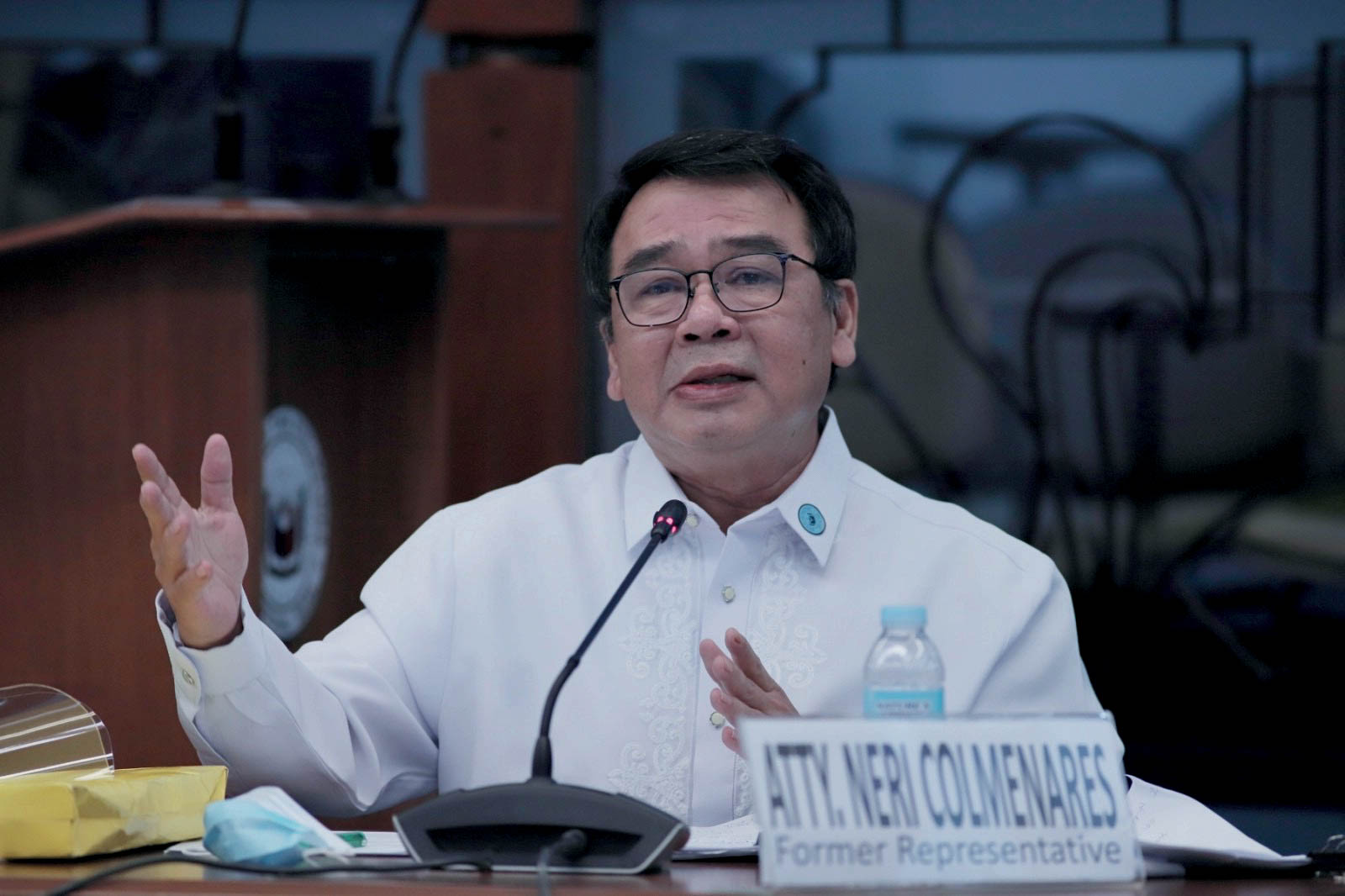Makabayan bloc pursues case vs $273M China loans
Opposition lawmakers in the last Congress are not giving up their fight to stop two project loans totaling $273 million that were obtained by the previous Duterte administration from China, insisting that there were violations during the bidding process and that the former President should be made a respondent in the case.
The former Makabayan bloc representatives led by Neri Colmenares on Tuesday filed a motion for reconsideration asking the Supreme Court to reverse its decision affirming the validity of the $62.08-million and the $211.21-million loans secured by the Philippine government from China in 2018 to finance the Chico River Pump Irrigation and the Kaliwa Dam projects, respectively.
Put Rody back
Among the original respondents in the petition against the projects was then President Rodrigo Duterte, but the decision of the Supreme Court, which was promulgated on Aug. 9 but made public only this month, struck off Duterte’s name as a respondent given the presidential immunity he enjoyed as Chief Executive at the time.In the 28-page motion for reconsideration, the former Makabayan bloc representatives argued for Duterte’s inclusion, claiming that while the 1973 Constitution explicitly stated presidential immunity from suit, such provision was “dropped and deleted” in the 1987 Constitution that followed the ouster of the late strongman Ferdinand Marcos Sr.
“The claim that without presidential immunity the President ‘can be dragged into court litigations’ and will be subject to ‘harassment, hindrance or distraction’ that he will not be able ‘to fully attend to the performance of his official duties and functions’ may be accepted jurisprudentially before, but is one of the most unrealistic exaggerations of today,” they said.
Speculative claims
The petitioners also noted that while the 1987 Constitution specified that preference should be given to Filipinos, the fact that the Duterte administration made the bidding process exclusive to Chinese contractors made the loan agreements “unconstitutional.”
Article continues after this advertisementThey likewise pointed out that the Chinese contractors who participated in the bidding “were not known for their integrity,” specifically naming China Geo Engineering Corp. which, according to international news reports, left its infrastructure projects in Zambia unfinished despite being paid more than what they were owed.In declaring that the two loan deals were “valid and not unconstitutional,” the high court said the petitioners failed to present compelling issues to warrant the nullification of the projects’ loan agreements.“[The] loan agreements have sufficiently complied with the applicable procurement laws and conform with the pertinent provisions of the Constitution,” the Supreme Court said.
Article continues after this advertisementCarpio warning
The loan for the Chico River project was signed on April 10, 2018, between Export-Import Bank of China (Eximbank) and the Philippine government through the Department of Finance. Through Resolution No. 813 dated May 17, 2018, the Monetary Board of the Bangko Sentral ng Pilipinas gave its final approval to the loan agreement.For the $211.21-million loan for the Kaliwa Dam project, the Monetary Board gave its final approval on June 6, 2019, under Resolution No. 854.Colmenares’ group had raised that the loan agreement “contains express waiver by the Philippine government of its sovereign immunity from execution against its patrimonial assets.”The original petition filed in April 2019 came after then Senior Associate Justice Antonio Carpio claimed that the terms of the Chico River project could allow China to seize oil-rich Recto (Reed) Bank off Palawan province if the Philippines failed to pay the loan.
China has laid claim to Reed Bank, forcing the Philippine government to put on hold the commercial exploration for oil and natural gas in the area.The petitioners earlier argued that a reading of the provision of the loan agreement showed that the government “has allowed its patrimonial assets to stand as security for unpaid obligations under this loan agreement.”“Collateralization” of patrimonial property for unpaid obligations under a foreign loan contract or as an award in an arbitral proceeding is unconstitutional and illegal,” the petition read.
According to the Supreme Court, the petitioners’ contentions that the choice of applicable law and forum were heavily skewed in favor of the lender Eximbank and would prove greatly disadvantageous to the Philippines in case a dispute arises “deserve no consideration.”
“As Associate Justice Amy Lazaro-Javier pointed out, petitioners’ contentions are speculative at best, there being no indications that the arbitration clause has been or is being enforced,” the court said.
“Also, the court cannot sustain such apprehensions as petitioners have failed to prove as fact the allegedly inequitable foreign laws, of which the courts do not take judicial notice. Well established in our jurisdiction is that foreign laws must be alleged and proven like any other material fact,” it added.
Controversial
The two contested infrastructure projects were part of the Duterte administration’s ambitious “Build, Build, Build” program.The Chico River project, which was started in 2018, involves the construction of a pump house, substation, transmission line, canals and access roads that the National Irrigation Administration said would increase national rice production by about 36,000 metric tons and save about $15 million in rice imports.The Kaliwa Dam project in Quezon province, on the other hand, is expected to supply some 600 million liters of water a day to Metro Manila and prevent another water crisis in the capital region.Both projects are hounded by environmental and social concerns and opposed by indigenous peoples’ groups, environmentalists and some politicians.
Critics argued that the Chico Dam venture would have a negative impact on forests and rivers in the Cordillera region, while the Kaliwa Dam would only destroy ecosystems especially along Sierra Madre while displacing local communities. INQ
RELATED STORIES
China loans: PH natural resources as collateral?
PH gets P17.4B Chinese loan for bridge days before Duterte gone
